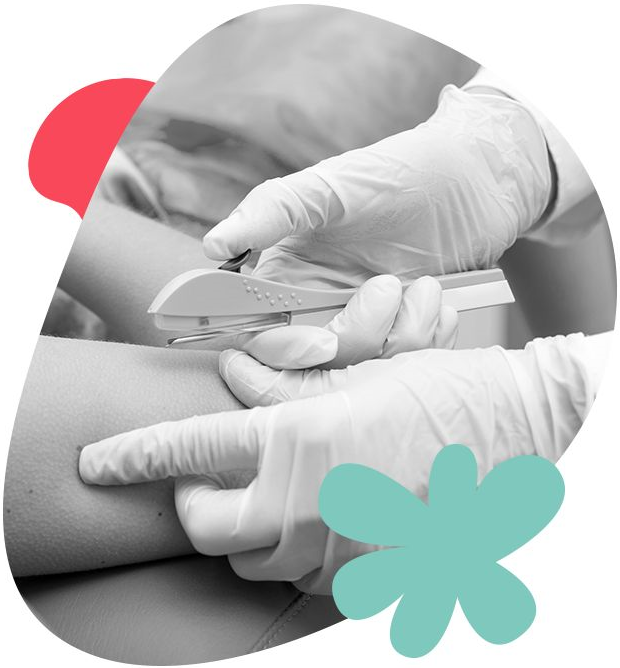
TREATMENT OPTIONS
Once the multidisciplinary team at NBCC diagnose cancer, the most effective treatment options will then be explained to the patient. There are two major types of treatment: local control and systemic treatment.
Local control concentrates on removing the tumor or cancer cells by surgery and radiotherapy. Systemic treatment focuses on destroying cancer cells that may have spread throughout the body by chemotherapy and hormone therapy.
SURGERY
The most common form of treatment for breast cancer is surgery. This could involve removing the whole breast gland (modified mastectomy) with immediate or delayed reconstruction, or removing the tumor and nearby tissue (partial mastectomy / lumpectomy) and oncoplastic reconstruction.
RADIATION THERAPY
Radiation therapy utilizes high-energy rays to destroy cancer cells and it only affects the areas in the body targeted with radiation. It is usually recommended a month after surgery to kill any residual cancers cells in the breast or armpit area that were not removed with surgery.
CHEMOTHERAPY
Chemotherapy is a systemic treatment method that employs a selection of drugs to either destroy cancer cells or reduce the growth of cancer cells throughout the entire body. A doctor might recommend chemotherapy before surgery to reduce the size of the tumor for more effective removal. It is also prescribed with other forms of treatment such as hormonal and targeted therapies.
HORMONE THERAPY
The hormones estrogen and progesterone normally regulate body cycles, but in certain cases, these hormones can cause cancer to develop in the body.
The pathologist will recommend tests to investigate whether the breast cancer cells have receptors that are strengthened with estrogen and progesterone. If these receptors are determined, then the multidisciplinary medical team will advise the patient on administering hormone therapy drugs such as blockers and inhibitors. These types of treatment aid in the destruction of cancer cells by blocking their source of hormones.
